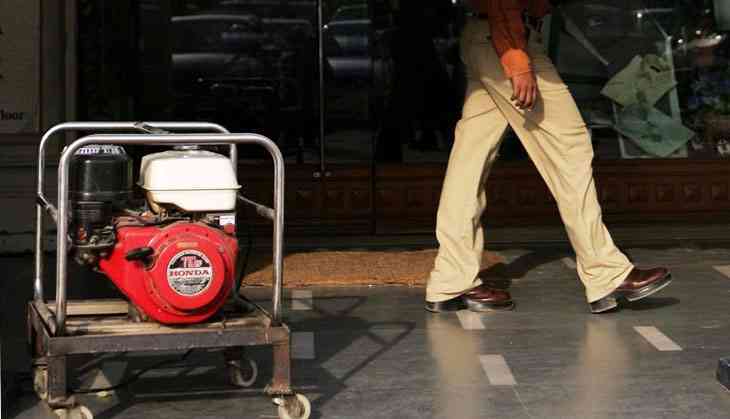Delhi pollution: Blanket ban on generators may harm households & small businesses

The Delhi Pollution Control Committee announced on Wednesday, November 15, a ban on electricity generator sets run on diesel, petrol and kerosene of all capacity in the National Capital Territory (NCT) till 15 March, 2018.
The Delhi Pollution Control Committee in a public notice said, “Delhi faces grave air pollution particularly in winter season and level of pollutants like Particulate Matter Concentration (PM 2.5 and PM 10) goes much beyond the prescribed standards for Ambient Air Quality and operation of electricity generators sets run on diesel, petrol and kerosene has been identified as one of the sources of air pollution in Delhi.”
Last month the Supreme Court mandated the Environment Pollution Control Authority (EPCA) to ban the use of only diesel generator in the NCT. However, now the Delhi government has issued a blanket ban on diesel, petrol and kerosene run electricity generators across the capital.
Sayed Musawwir Ali, member secretary of Delhi Pollution Control Committee, said, “The National Green Tribunal in various orders has directed the Delhi government and the DPCC to initiate steps to curb air pollution where has reached severe conditions in NCT. Electrical generators are one of the sources of air pollution in the city. This is an important step in the initiative to improve conditions of air pollution in the city.”
However, not everyone is happy with the ban. Ashutosh Dixit, a functionary in United Residents Joint Action, a common platform for resident welfare associations in Delhi said, “A separate norm regulating emission for generator sets already exists, which makes the ban questionable. What would happen to the norms that already exist? Would this ban be effective even on the generator sets which follow those norms? If yes, then what is the point in having such norms?"
He however added, “I agree that not all generators used in residential complexes are in keeping with the existing norms. It is likely that emergency measures like this may create problems for some sections of the society. But we also have to remember that to have a better future we need to sacrifice a bit in our present.”
He further added, "The main problems could be faced by high-rise residential colonies which use lifts. If power back-up such as generator sets are not available with such societies, then lifts may stop mid-way in case of sudden power cut and cause serious problems to the people in them. I suggest housing societies should approach the authorities to discuss such problems.”
However, the Delhi government has announced exemptions in the ban for essential services like healthcare (Hospitals, nursing homes, health care facilities), elevators and escalators and transport services including Indian Railways, Delhi Metro, airports and inter-state bus terminals.
Sayed Musawwir Ali said, “Exemptions are made for generators that operate lifts in residential and commercial complexes. Also, shopping malls do not depend on generator sets, but avail uninterrupted power supply from power distribution companies. We are aiming to reduce the usage of generators by individuals, owners, industries and commercial establishments which combined results in large-scale pollution.”
Although the Delhi government hasn’t categorically mentioned the use of alternative methods, Ali says, high power inverters could be a solution. “Delhi has mostly been able to achieve 24x7 supply of electricity, alternatives to the generator can be use of energy efficient solar devices and the generators powered by gas.”
However, these alternatives are extremely expensive for average income households as well as small business and industrial units like whose depend massively on the diesel generator.
Dixit said, "Inverters are not a solution for even large households and certainly not for businesses and industries. High powered inverters are very expensive. Generators powered by gas are also not feasible as they are not available everywhere in the market and are also very expensive. It is problematic but one must adhere to these laws for the betterment of the city."


